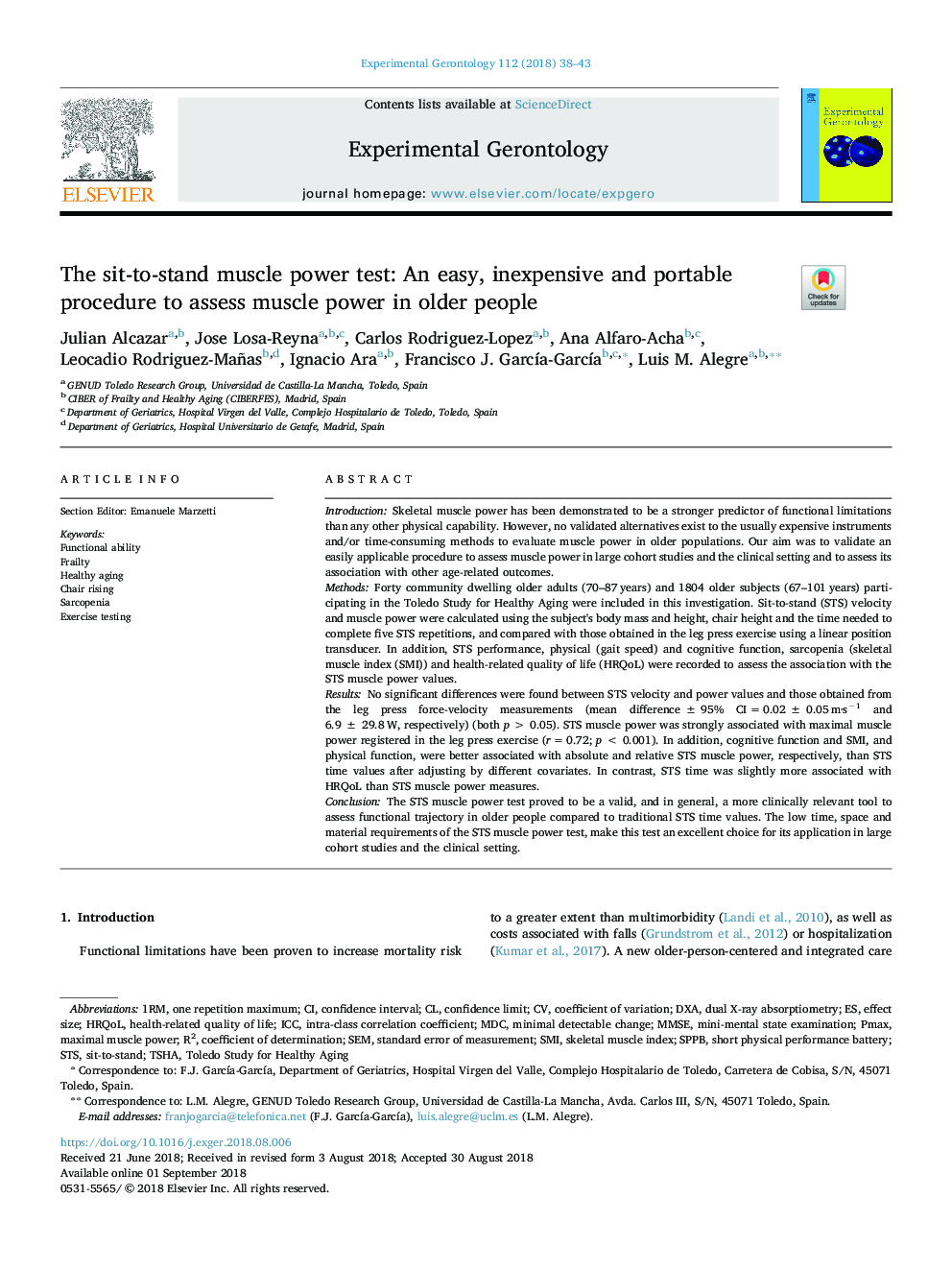| Article ID | Journal | Published Year | Pages | File Type |
|---|---|---|---|---|
| 10129077 | Experimental Gerontology | 2018 | 6 Pages |
Abstract
The STS muscle power test proved to be a valid, and in general, a more clinically relevant tool to assess functional trajectory in older people compared to traditional STS time values. The low time, space and material requirements of the STS muscle power test, make this test an excellent choice for its application in large cohort studies and the clinical setting.
Keywords
SMIHRQOLDXAICC1RMSTSMMSEMDCPmaxSPPBEffect sizeshort physical performance batteryExercise testingMinimal detectable changeFunctional abilityconfidence limitStandard error of measurementDual x-ray absorptiometryFrailtySkeletal muscle indexcoefficient of determinationCoefficient of VariationIntra-class correlation coefficientconfidence intervalSEMMini-Mental State ExaminationSit-to-standHealthy agingSarcopeniaHealth-related quality of lifeOne repetition maximum
Related Topics
Life Sciences
Biochemistry, Genetics and Molecular Biology
Ageing
Authors
Julian Alcazar, Jose Losa-Reyna, Carlos Rodriguez-Lopez, Ana Alfaro-Acha, Leocadio Rodriguez-Mañas, Ignacio Ara, Francisco J. GarcÃa-GarcÃa, Luis M. Alegre,
